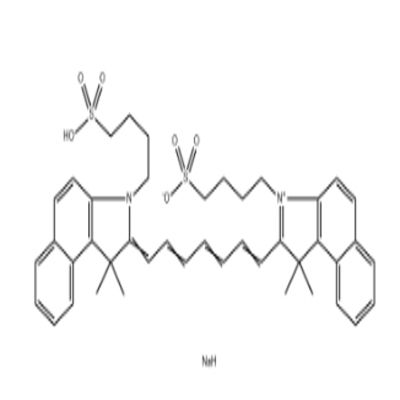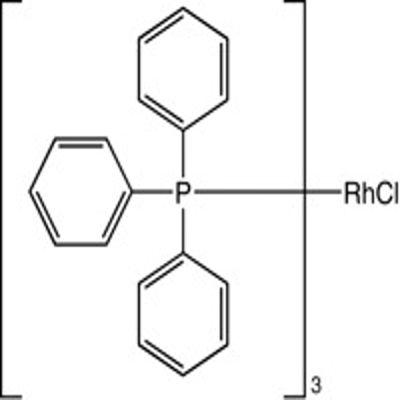-
Categories
-
Pharmaceutical Intermediates
-
Active Pharmaceutical Ingredients
-
Food Additives
- Industrial Coatings
- Agrochemicals
- Dyes and Pigments
- Surfactant
- Flavors and Fragrances
- Chemical Reagents
- Catalyst and Auxiliary
- Natural Products
- Inorganic Chemistry
-
Organic Chemistry
-
Biochemical Engineering
- Analytical Chemistry
- Cosmetic Ingredient
-
Pharmaceutical Intermediates
Promotion
ECHEMI Mall
Wholesale
Weekly Price
Exhibition
News
-
Trade Service
On October 12, the official website of the National NMPA announced that the third adaptive application (acceptance number: CXHS2000030) for Ektini (commodity name: Kemera®) of Beida Pharmaceuticals is to be included in the priority review and approval, and the single drug is applicable to phase II-IIIA with EGFR gene-sensitive mutation non-small cell lung cancer (NSCLC) postoperative assisted treatment.
and synchronous ocysin tablets from AstraZeneone were also included in the priority review for postoperative complementary treatment of tumors in adult patients with EGFR-sensitive mutations of non-small cell lung cancer (NSCLC).
two major domestic EGFR targeted drugs have obtained the priority approval of lung cancer postoperative assistance, this achievement can not be separated from the targeting assistance in recent years to make research results.
how chemotherapy can improve patients with surgical lung cancer compared to targeted aids, look at the data together.
EVIDENCE study data locked, Ektinib winning standard chemotherapy EVIDENCE study is independently developed by Beda Pharmaceuticals Ektinib comparative standard auxiliary chemotherapy for II.-III.A period with EGFR sensitive mutation non-small cell lung cancer patients postoperative auxiliary treatment of multi-center, randomized, open, III. clinical studies.
was treated with ektini, and the control group was treated with standard complementary chemotherapy.
The project was approved for clinical trials on December 15, 2014 and the first researchers' meeting was held on March 28, 2015, led by Professor Zhou Caizhu of Shanghai Lung Hospital and Professor He Jianbing of the First Hospital affiliated with Guangzhou Medical University.
the first patients in the group on 8 June 2015, 322 patients were admitted to the group by 2 August 2019 and the database lock-up was completed on 17 June 2020.
results showed that in terms of efficacy, the Ektini treatment group (125mg, 3 times a day, 2 years of complementary therapy) compared to the standard auxiliary chemotherapy group (Changchun Ruibin/ cisplatin or Pygmy cisplatin, a total of 4 cycles), the patient's medium disease-free survival (DFS) was 46.95 months vs 22.11 months (P<0.0001); 3-year DFS rate was 63.88% vs 32.47%; in terms of safety, the rate of adverse reactions in the Ektini treatment group was significantly lower than in the standard auxiliary chemotherapy group; the rate of adverse reactions at level 3 and above was 4.49%; and the standard chemotherapy group was 59.71%.
a comprehensive view, the efficacy of hydrochloric acid ecclinib tablets for postoperative ancillary therapy in patients with sensitive mutations in the EGFR gene was better than that of standard complementary chemotherapy, which significantly prolonged the patient's disease-free survival and improved safety.
clinical results of EVIDENCE are of great clinical significance and a landmark event, further confirming the position of targeted therapy in the complementary treatment of patients with EGFR-sensitive mutation non-small cell lung cancer.
results provide an important evidence-based basis for Ektinib's postoperative complementary therapy for patients with non-small cell lung cancer with EGFR-sensitive mutations.
ADAURA Study: "ADAURA Program" or the new standard ADAURA for future early or localized patients is a randomized double-blind, global, placebo-controlled Phase III clinical study designed to assess the efficacy and safety of efficacy of obsessive-ion (n-339) and placebo (n-343) assisted treatment (3 years) after surgical complete excision in patients with IB-IIIA stage EGFR-sensitive mutation NSCLC±
main endpoint was the researchers' assessment of disease-free survival (DFS) in patients with stage II-IIIA.
On April 10 this year, AstraZeneca announced that the ADAURA study had been published in the form of a summary of the LBA (the heaviest study at the ASCO Conference) at the ASCO Conference, based on the recommendations of the Independent Data Monitoring Board (IDMC) because of the overwhelming efficacy of Oghitini in EGFR mutation-positive NSCLC-assisted therapy.
results showed that oghithinib significantly extended the mid-DFS in patients with stage II-IIIA compared to placebo, and that the middle DFS in both groups did not reach and 20.4 months (P<0.0001, HR-0.17), reducing the risk of disease recurrence or death by 83%, and the study reached the primary endpoint.
DFS rates were higher in the 1-year and 2-year DFS groups than in the placebo group, at 97% vs 61%, 90% vs 44%, respectively, and the 3-year DFS rate increased by more than 50% (80% vs 28%).
total population (IB-IIIA), the mid-DFS in the Oghitini group was also significantly better than the placebo group, at 28.1 months (HR=0.21, P<0.0001), respectively.
1-year, 2-year and 3-year DFS rates for the two groups were 97% vs 69%, 89% vs 53% and 79% vs 41%, respectively.
subgroup analysis showed that patients who had received complementary chemotherapy in the past, whether or not they had received complementary chemotherapy, benefited significantly from follow-up assisted Oxitini, and more significantly from patients who had received complementary treatment in the past (HR=0.18).
at this year's ESMO Conference, the ADAURA study published the latest results, published in the journal NEJM, showing that in 470 patients with phase II-IIIA, the two groups had a medium follow-up time of 22.1 months and 14.9 months, respectively, compared to placebo. Oghithini significantly extended the mid-DFS in patients with stage II-IIIA, with the two groups of medium DFS not reaching and 19.6 months (P<0.001, HR-0.17), respectively, reducing the risk of recurrence or death by 83%.
total population (IB-IIIA, 682 cases), the mid-DFS in the Oghitini group was also significantly better than the placebo group, at 27.5 months (HR-0.20, P<0.001).
2-year DFS rate for the two groups was 89% vs 52%, respectively. In the overall population, 7% (23/339) and 18% (61/3), respectively, were in the Oghidini and placebo groups. 43) A local relapse (local recurrence only) occurred in 4% (14/339) and 28% (96/343) patients (only distant or distant with local recurrence).
At present, surgery is still the main treatment method of I-III NSCLC, about 30% of NSCLC patients have the opportunity to receive surgical treatment at the beginning of diagnosis, in order to reduce metastasis and recurrence, prolong the survival time of patients, postoperative auxiliary treatment has become an important part of the treatment of patients with early or local late stage.
studies have shown that complementary chemotherapy can bring survival benefits to NSCLC patients, but OS benefits are relatively limited.
, there is a clinical need for other new complementary treatment options.
-targeted therapy has made remarkable progress and progress in metastasis NSCLC patients, and the door of targeted postoperative assistance has been slowly opened, and we look forward to the final confirmation being approved to lead to a new pattern of assisted targeted therapy.
source: 1. YL, et al. CTONG 1104: Adjuvant Gefitinib versus Fcry for Resected N1-N2 NSCLC with EGFR Mutation: Final Overall Survival Analysis of the RandomIzed Phase 3 Trial . ASCO 2020.3.Zhong WZ, Wang Q, Mao WM, et al. Gefitinib versus vinorelbine plus cisplatin as adjuvant treatment for stage II-IIIA (N1-N2) EGFR-mutant NSCLC (ADJUVANT/CTONG1104): aised random, open-label, phase 3 study. Lancet Oncol. 2018;19(1):139-148. doi:10.1016/S1470-2045 (17) 30729-5.4.9005-CTONG1104: Adjuvant gefitinib versus for resected N1-N2 NSCLC with EG EG FR mutation-Final overall survival analysis of the randomized phase III trial 1 analysis of the randomized phase III trial.2020 ASCO.5.Osimertinib in Resected EGFR-Muted Non-Small Cell-Lung Cancer, publicized on September 19,2020, at NEJM.org. DOI: 10.1056/NEJMoa2027071.







